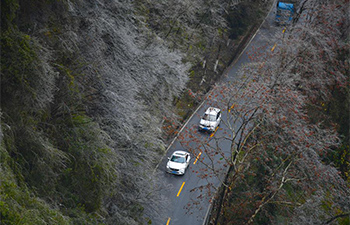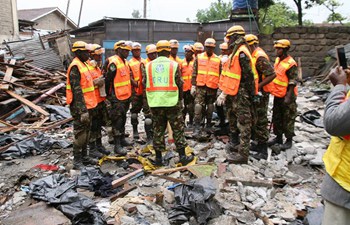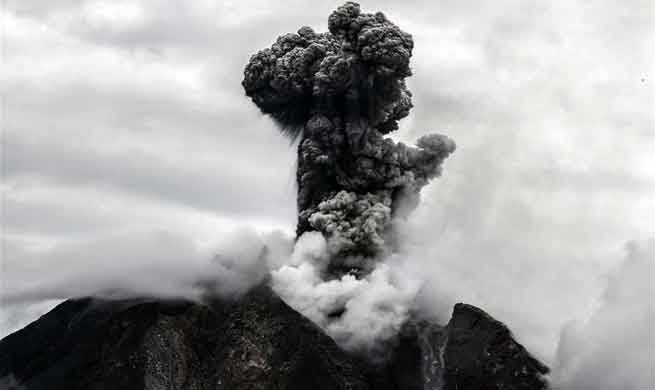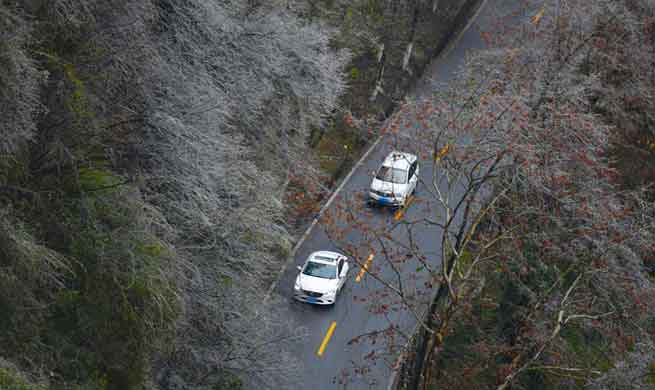WASHINGTON, Jan. 4 (Xinhua) -- U.S. space agency National Aeronautics and Space Administration (NASA) said Thursday that it would launch two missions to explore a little-understood area 60 miles (96 KM) above Earth's surface.
The Global-scale Observations of the Limb and Disk (GOLD) mission will be launched aboard a commercial communications satellite in January 2018, and the designed spacecraft Ionospheric Connection Explorer (ICON) will be launched later this year, NASA said.
GOLD and ICON will team up to explore the ionosphere, a boundary area between Earth and the space where particles have been cooked into a sea of electrically-charged electrons and ions by the Sun's radiation.
These layers of near-Earth space are increasingly becoming a part of human domain as it is home to radio signals used to guide airplanes, ships and Global Positioning System satellites.
NASA said the two missions are complementary. ICON in low-Earth orbit, at 350 miles (560 km) above Earth, flies through and just above the ionosphere, like a close-up camera.
GOLD runs in geostationary orbit over the Western Hemisphere, 22,000 miles (about 35,398 km) above the planet's surface. It will build up a full-disk view of the ionosphere and the upper atmosphere beneath it every half hour.
The two missions can cooperate with each other when ICON passes through GOLD's field of view and each mission can get a snapshot of the same region. This overlap in their data makes it easier to identify what caused a certain change to the upper atmosphere at a given time, NASA said.
One of the missions' goals is to measure how upper atmosphere changes in response to hurricanes and geomagnetic storms.
"We used to think only solar wind could affect the ionosphere, and only the lower atmosphere was affected by terrestrial weather," said Doug Rowland, ICON mission scientist at NASA. "But now we're going to get to see how that energy couples together."
The solar wind is the Sun's constant outflow of charged particles and magnetized material.
In addition, the agency is hoping to find evidences for a theoretical model about El Nino's repercussions on the ionosphere. The model suggests that the El Nino-driven warming of the Pacific Ocean increases water vapor and the amount of solar energy the atmosphere absorbs, and then the added heat alters conditions in the ionosphere.
"There are huge scientific modeling efforts associated with both of these missions," said Sarah Jones, GOLD mission scientist at NASA. "We already have models that are filled with really good science, but these new measurements will lead to a better understanding of the physics in the models."
GOLD will also explore how the upper atmosphere reacts to geomagnetic storms, which are temporary disturbances of Earth's magnetic field set off by solar activity.
During nighttime, GOLD will examine disruptions in the ionosphere, which are dense, unpredictable bubbles of charged gas that appear over the equator and tropics, sometimes interfering with radio communications.

















